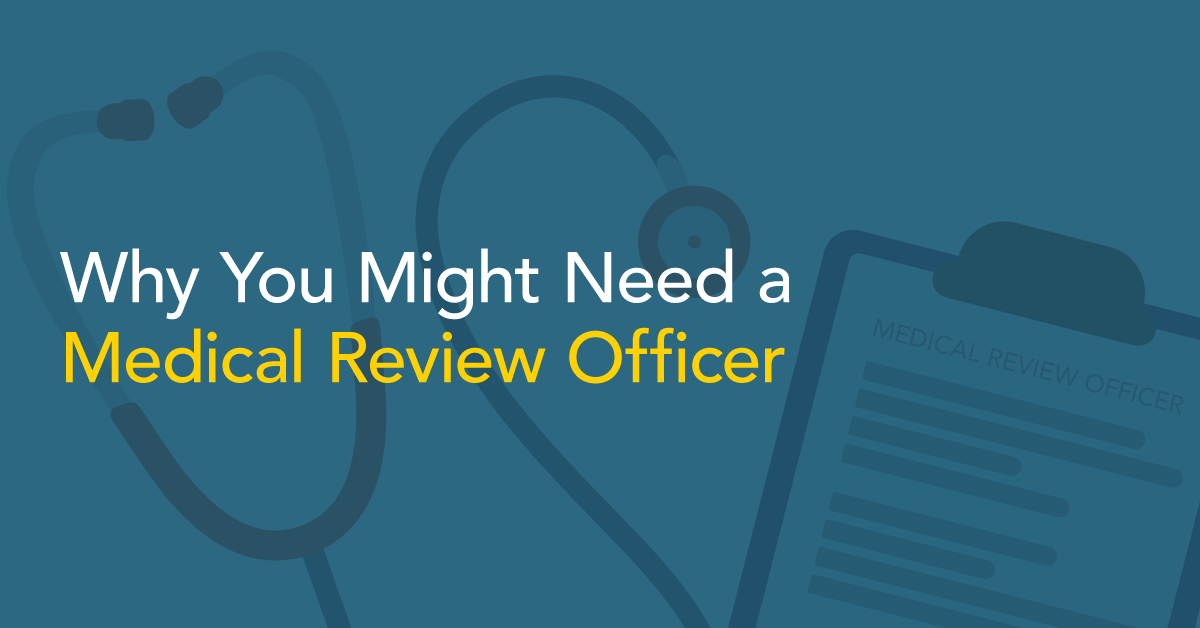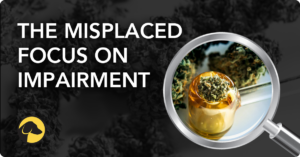
The Growing Demand for Medical Review Officers
The legalization of cannabis has had almost as much impact on workplace drug testing as the Omnibus Transportation Employee Testing Act (OTETA) of 1991, which first legislated mandatory random drug testing for all employees in safety-sensitive jobs in industries regulated by the Department of Transportation (DOT). Medical Review Officers (MROs) have also been greatly impacted by cannabis legalization, affecting how they help employers and employees navigate workplace drug testing.
AN IMPORTANT ROLE
MROs help balance the needs of the employer and their employees. In this capacity, one of their roles is to act as the gatekeeper between the employer and the employee as it relates to employees’ personal health information (PHI). For example, if a physician prescribes an employee the therapeutic use of a drug that may impact their job performance, the MRO would typically work with the physician, the employer, and the employee to make sure everyone has accurate information and that, ultimately, the employee can function safely. There has been a growing demand for MROs as intermediaries because therapeutics have become more complex and because PHI has HIPAA1 implications and employers don’t want to violate that.
MROs can function in other capacities. They often work as a check and balance to verify the accuracy of the drug testing process. Was the sample collected appropriately? Was there a processing error at the lab? They can also function as an employee advocate to help determine whether a non-negative result was obtained correctly and, in the process, protect the employee’s privacy.
Since an employer cannot ask about an employee’s health status, MROs can play a critical role in the drug testing process. Employers need to know if an employee is taking medication that can create safety issues for the employee, their colleagues, and the broader community. MROs help connect the dots to keep people safe while protecting employees’ privacy and safeguarding employers’ businesses. MROs help employers differentiate between genuine therapeutic use of drugs, illegal use of substances, and issues during the drug testing process while maintaining employee confidentiality.
IMPACT ON SAFETY-SENSITIVE POSITIONS
As therapeutic use of drugs has become more complex, some MROs offer additional services such as working with employers to develop effective workplace drug testing programs. This usually involves working with employers to help them take a holistic view of safety-sensitive roles to achieve their drug deterrence and risk mitigation goals. In conjunction with outside counsel, working with an MRO in this capacity can make sure your workplace drug testing program and policies reflect your goals and take into account current drug testing legislation and applicable regulations.
While the DOT has a narrow definition of a safety-sensitive position, today’s business environment necessitates a wider scope where any role that can impact operations and continuity (including safety and financial risks) should be considered safety-sensitive. Employers must first review which positions can be classified as safety-sensitive for compliance with the Americans with Disabilities Act of 1990 (ADA) with guidance from the Equal Employment Opportunity Commission (EEOC). Most employers would benefit from expanding their definition of safety-sensitive to protect their employees, customers, business, and surrounding community.
POLICY RECOMMENDATIONS
MROs may also work with employers to think about business-sensitive roles. Most people wouldn’t want the cybersecurity professionals responsible for securing their personal health information to be under the influence of substances. If cybersecurity professionals’ job performance is negatively impacted because of substance use, hackers may be able to cause and create harm – from crippling critical infrastructure to exposing personal data. This is a business-sensitive role that could be defined in an employer’s drug testing policy. Each industry has specific business-sensitive roles that could be identified. MROs can help identify these roles and make policy recommendations specific to the industry and position.
DRUG-SAFE WORKPLACE
Some MROs use the term drug-safe workplace instead of a drug-free workplace. The therapeutic use of drugs cannot be eliminated, but it can be managed if employers think strategically about their drug testing programs. The use of drugs and alcohol in the workplace is not just a safety issue – it also affects productivity, morale, and profitability. MROs can work with employers to evaluate their drug testing programs through a risk mitigation lens.
In addition to defining safety-sensitive and business-sensitive roles, MROs can help employers think through the frequency of testing and develop fair and practical policies that address employees’ tenure at the company – not just pre-employment and post-accident testing. MROs may help employers understand that periodically testing a broad range of employee positions annually could be the most effective deterrent to alcohol and drug use during the workday. As mentioned earlier, MROs often work as a broker between a physician, an employee, and an employer to evaluate prescriptions that may be given to an employee. They ensure the medication, including a prescription for medical cannabis, will not jeopardize the employee’s safety and that of their colleagues and customers. They coach employers to create flexible programs that address the majority but can still accommodate specific situations.
In the end, MROs do more than facilitate communication among an employee, their employer, and their physician. MROs are a valuable resource to help employers create effective drug testing programs that achieve the goal of a drug-safe workplace in an increasingly complex environment, further complicated by the legalization of cannabis. Employers may discover that involving an MRO, in addition to working with their legal counsel, will result in the most effective drug testing programs for both employer and employees.
A special thank you to Angela Moore, CEO of Cynergy Wellness, Inc., a nationally recognized industry leader in the provision of Medical Review Officer services, who provided background information for this article. We will explore more MRO-related issues in an exclusive Q+A with Angela featured in an upcoming Hound® Herald, our monthly newsletter. Subscribe here so you don’t miss our next blog with Angela.

June 9, 2022
By JENNY LYNN
Co-Founder
Share












